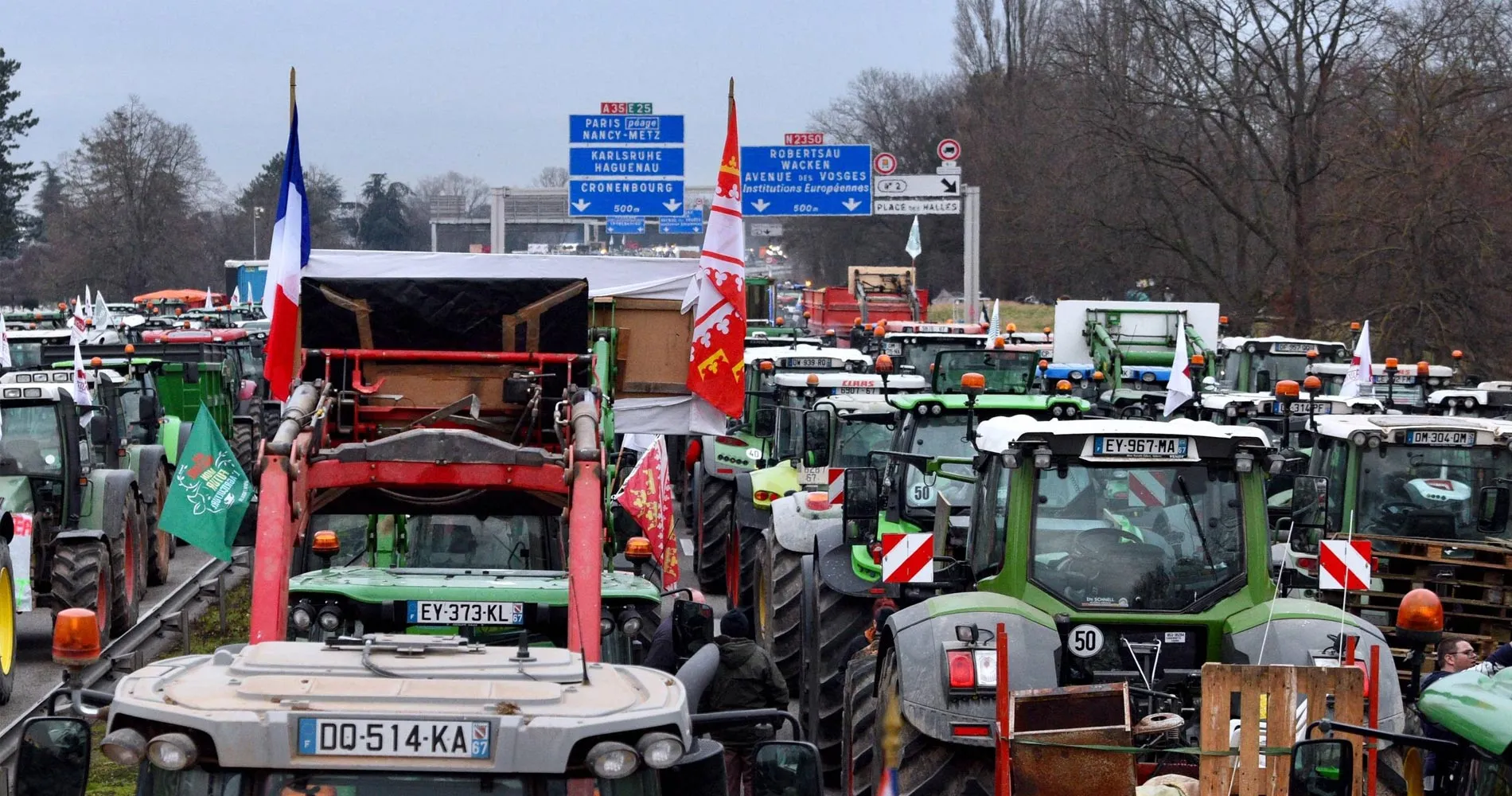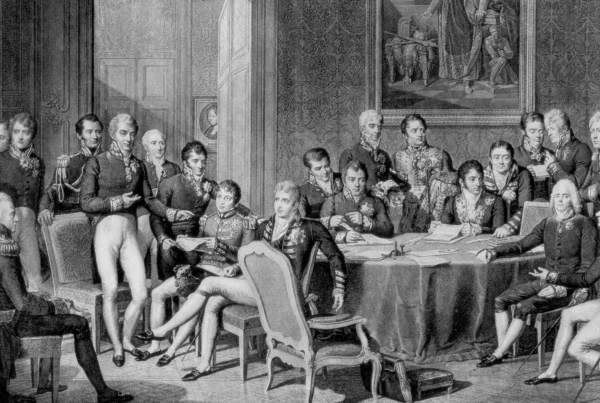With EU parliamentary elections approaching in June 2024, the EU Commission and the EU Parliament have desperately tried to win over farmers’ votes. Farmers are unimpressed by the proposed review of the EU Common Agricultural Policy (CAP) and the import cap for Ukrainian grains and poultry. Energy costs, environmental regulation and Ukraine’s special treatment continue to anger farmers across Europe.
Bruce McMichael
21 March 2024
Arabic version | French version | German version | Spanish version
Farmers across Europe are angry. They feel disposed and powerless and hold a list of grievances that is long and stretches back in time. They fear their industry is becoming disconnected with lawmakers working in cities such as Berlin, Brussels and Budapest.
EU elections are approaching and the EU is making an effort to appease angry farmers. The EU Commission announced on 15 March 2024 that it will review its CAP conditionalities. The Commission hopes to reach a quick agreement on these new measures with the Council and the EU Parliament.
Von der Leyen, who is running for re-election and has been nominated by European People’s Party (EPP) on 7 March 2024, has come out in support of the farmers. “The Commission will continue to stand steadfastly by our farmers.” Noting that these changes to the CAP were necessary to remain “flexible” and respond to “changing realities”.
The proposed changes to the CAP make the non-productive share of arable land voluntary, allow farmers to choose to either rotate or diversify their crops and allow Member States more flexibility in defining “sensitive periods” and exempting certain crops, soil types or farming systems from CAP conditionalities. The Commission has also proposed exempting small farms of under 10 hectares from controls and penalties related to compliance with CAP requirements.
These new proposals are meant to appease farmers whose protests are directed against the strict new environmental laws, the lack of financial support for rising prices, designated fallow hectares of viable crop-growing land, specifying the size of poultry coops, dictating how to manage hedgerows, as well as increased fees on phytosanitary products (plants requiring health certificates) and irrigation. At the same time, the tax exemption on tractor diesel is ending, and concern is growing about the probable impacts of expected EU free trade agreements which do not impose these strict environmental and animal welfare standards on imports.
After nearly a quarter of a century of negotiations the EU/MERCOSUR trade deal was put on ice at the Rio de Janeiro summit in December 2023. French President Emmanuel Macron declared that the deal does not offer enough environmental guarantees.
Closer to home, the war in Ukraine has effects on trade, with the bread basket of the former Soviet Union now able to sell goods and grains into the EU without tariffs. This measure was approved in 2022 to keep Ukraine’s economy going, but the effect on European farmers has been disastrous. Energy and fertilizer costs have risen across the world as a direct result of the war.
On 20 March 2024, the EU Parliament renewed for another year the tariff exemption for Ukrainian grains and poultry. The EU’s proposed “emergency brake” to freeze tariff free import levels on grains and poultry has not appeased farmers. Romanian and Polish farmers continue to block border crossings with Ukraine in an effort to reverse the EU’s special treatment of Ukraine.
The protests do appear to be having some effect. In France, scheduled increases in fuel duties have been delayed, and in Germany, they have been scrapped. The farmers are not backing down, despite the EU’s proposals.
Meanwhile, Rishi Sunak became the first UK prime minister in over 15 years to address the influential NFU (National Farmers Union) annual conference in mid-February 2024. In a familiar story across the EU, the British farming community is under pressure from rising energy and fertilizer costs, supermarkets demanding lower prices and a challenging post-Brexit farm payments scheme. In common with EU farmers, many in the UK feel that environmental policy has taken priority over food productivity.
With a general election expected this year, Sunak and his ruling Conservative party are keen to be seen as on the side of farmers, promising £220m new food-productivity schemes, investment in farm technology and automation to ‘reduce reliance on overseas workers’.
National elections held in late 2023 across the Netherlands resulted in a newly organised, populist, right-leaning farmers’ party gathering 19% of the vote in a country where just 2.5% of the workforce works in agriculture. The Farmer-Citizen Movement, known in Dutch as the BoerBurgerBeweging (BBB), is fighting against proposed nitrogen laws. Why? Because intensive dairy and pig farming has led to the generation of vast quantities of nitrogen-producing manure, leading to dangerously high levels of nitrogen in the soil and air. Dairy farmers are under intense political pressure over greenhouse gas emissions and are threatened with closure.
Family-led farms in the UK and across Europe believe that the powerful supermarket sector has too much lobbying influence on governments, which sees farming as an industry of large corporations promoting industrial agriculture. In France, thousands of small, family-run farms have no representation. Many have turned to social media for information that is fuelling the spread of conspiracy theories and misinformation. In contrast, over 200 farmer unions were involved in February’s Delhi demonstrations.
But at the heart of Europe, there is more to the strikes and demonstrations than farming. European farmers are just part of a more significant, longer-term decline in European business, with farming accounting for just 1.4 per cent of the European Union’s GDP. At the same time around one-third of the EU’s budget is directed to the agricultural sector. One-third of the CAP budget remains earmarked for voluntary actions advancing the environmental, climate and animal welfare objectives.
The pain farmers feel is real, and there is no easy fix in a globalized world focussed on ever smaller profit margins. EU farmers continue to protest because the EU’s proposed targeted CAP reforms and the “emergency brake” on Ukrainian imports do not meet their demands.







